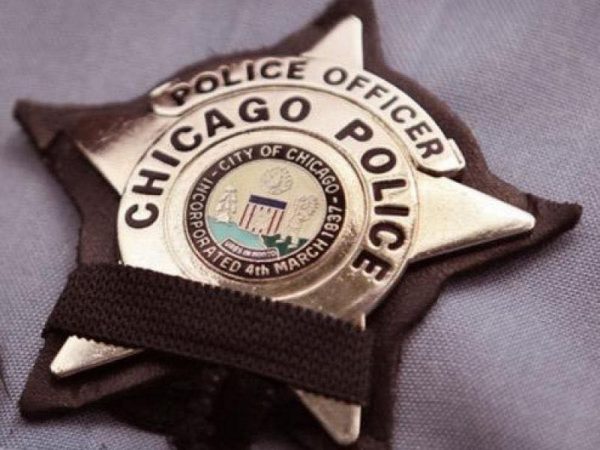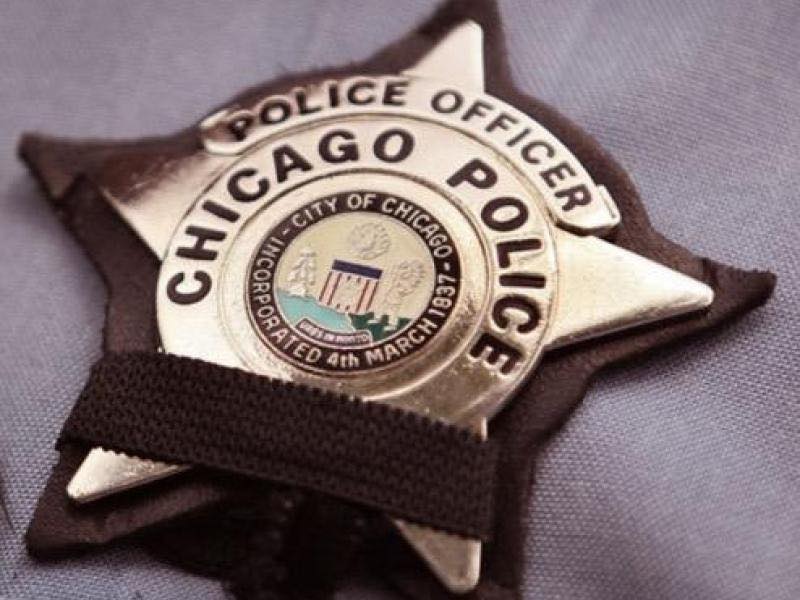
Washington, D.C.-(ENEWSPF)- Thursday, Congresswoman Robin Kelly introduced the First Responder Resiliency Act, legislation to expand access to federal resources for programs that support the health and wellness of our nation’s first responders.
“Our nation’s first responders are intrinsically selfless. They run toward danger and disaster, not away from it. They put their lives and minds on the line every day in service to our safety. Congress needs to act to help ensure that they come home safe and healthy,” said Congresswoman Robin Kelly.
For the last five years, more law enforcement officers and firefighters have been lost to suicide than killed in the line of duty.
In 2019, the Chicago Police Department experienced at least eight officer suicides on top of five in 2018. From 2013-2015, the Department of Justice reported that the CPD suicide rate was 60 percent higher than the national average for police departments. According to research from the Firefighter Behavioral Health Alliance, Illinois has experienced 125 documented firefighter and 4 documented EMS suicides.
The First Responder Resiliency Act would exempt job-related mental health grants, currently authorized and issued under the existing Department of Justice’s Community Orientated Policing Services (COPS) and FEMA’s Assistance to Firefighters Grants (AFG) programs, from the programs’ matching fund requirements.
“We consistently hear from local communities and governments about the challenge of finding local matching funds for federal grant programs. When given the choice between using limited local matching funds for public safety equipment or responder wellness, most departments will forego their own needs in order to pursue the greatest public good. This bill will ensure that no department is forced to make this impossible choice between responder wellness and public safety. This bill will allow departments to use their limited matching funds for public safety equipment and programs while still pursuing grants to support resiliency and first responder wellness,” added Congresswoman Kelly.
The First Responder Resiliency Act has been endorsed by a number of organizations including the Major Cities Chiefs Association, Firefighters Behavioral Health Alliance, National Police Suicide Foundation, American Foundation for Suicide Prevention and American Society of Suicidology. Their endorsing quotes follow:
Major Cities Chiefs Association:
“First responders place their lives on the line every day and while we often talk about the physical risks they face, not enough is being done to address their mental and emotional health. In the law enforcement community, the number of officers who suffer from PTSD and the number who take their own lives are both far too high. The First Responder Resiliency Act of 2020 will play an important role in expanding existing and creating new mental health resources by removing the grant matching requirement for agencies. The Major Cities Chiefs Association looks forward to helping advance this legislation,” said Art Acevedo, Chief, Houston Police Department, and MCCA President.
Firefighter Behavioral Health Alliance
“The rapidly increasing number of firefighters taking their own lives has surpassed Line of Duty Deaths these past five years. Our firefighters and EMS have a difficult job and have unique emotional needs specific to their occupation. We need strong systems that support those who serve our families and communities by putting their life and minds on the line every day.” said Jeff Dill, founder of the Firefighter Behavioral Health Alliance (FBHA), Licensed Professional Counselor and retired Captain of the Palatine Rural Fire Protection District in Inverness, IL. “I’ve been all over the country visiting all types of fire and EMS departments. It is clear that a greater focus on resources for behavioral health issues, from PTSD and anxiety to addiction and suicide, will benefit all departments, firefighters, EMS, their families, and our communities.”
FBHA is the only known organization in the U.S. that tracks and validates all firefighters, EMS, Wildland and Military members who died by suicide. Data was first collected in 2010 by FBHA.
National Police Suicide Foundation:
“Our nation’s law enforcement officers put their lives on the line every day and the daily stress of their challenging profession can affect their personal lives and mental health. This has led to a shocking spike in suicides among law enforcement and other first responders. By exempting job-related mental health grant funding from the matching fund requirement through the First Responder Resiliency Act, we can ensure that more officers and more departments have the resources and programs necessary to ensure that officers go home safe and healthy, in body and mind,” said Dr. Robert Douglas Jr., founder and executive director of the National Police Suicide Foundation.
American Foundation for Suicide Prevention:
“The American Foundation for Suicide Prevention (AFSP) thanks Representative Kelly for supporting the mental health of our first responders through the First Responder Resiliency Act. Today, police officers and firefighters are more likely to die by suicide than in the line of duty. The First Responder Resiliency Act will make much needed mental health and suicide prevention resources available to first responders in need, serving those who protect and serve our communities. We applaud Rep. Kelly for her leadership in this cause and urge Congress to pass this important legislation into law,” said AFSP’s Senior Vice President and Chief Public Policy Officer John Madigan.
American Association of Suicidology:
“We applaud Congresswoman Kelly’s efforts to ensure the critical and equitable access to community mental health and suicide prevention services for this nation’s first responders. By making it more feasible for communities to apply for grants to provide these services, the First Responder Resiliency Act is an excellent tool in fighting the public health crisis that is suicide. We rely on these individuals to keep the public safe and they absolutely deserve the same care and respect in return,” said Colleen Creighton, CEO of the American Association of Suicidology.
This is news from Congresswoman Robin Kelly’s office.
Risk factors for suicide
The Mayo Clinic website lists several risk factors. Factors that put people at higher risk include:
- A prior suicide attempt
- Having a psychiatric disorder, such as depression, bipolar disorder, schizophrenia or personality disorders
- Alcohol or substance abuse
- A family history of mental disorders or substance abuse
- A family history of suicide
- Family violence, including physical or sexual abuse
- Firearms in the home
- A significant medical illness, such as cancer or chronic pain
Potential warning signs of suicide
While stressing that some people don’t reveal any suicidal feelings or actions, the Mayo Clinic website lists some typical warning signs:
- Talking about suicide, including making such statements as “I’m going to kill myself,” “I wish I were dead,” or “I wish I hadn’t been born”
- Withdrawing from social contact and having an increased desire to be left alone
- Wide mood swings, such as being emotionally high one day but deeply discouraged the next
- Preoccupation with death and dying or violence
- Changes in routine, including eating or sleeping patterns
- Personality changes, such as becoming very outgoing after being shy
- Risky or self-destructive behavior, such as drug use or unsafe driving
- Giving away belongings or getting affairs in order
- Saying goodbye to people as if they won’t be seen again
Hopeline Network
Joanna Drackert, NCC LPC, who also serves as a guidance counselor at Marian Catholic High School, provided the following comments in light of this tragic event, “Suicide is a very permanent solution for what may feel like an overwhelming obstacle in your or someone else’s life. Remember to take the feelings of hopelessness seriously. There are people who will listen and help and really care. If you are in need of help please call the hotline number or contact a counselor, teacher, clergy, doctor, parent, or friend. DO NOT ISOLATE YOURSELF. You do not have to be alone. Reach out immediately!”
Ms. Drackert provided the number of the Hopeline Network, 1-800-SUICIDE (1-800-784-2433).
Sources: http://www.mayoclinic.com, http://www.hopeline.com/









